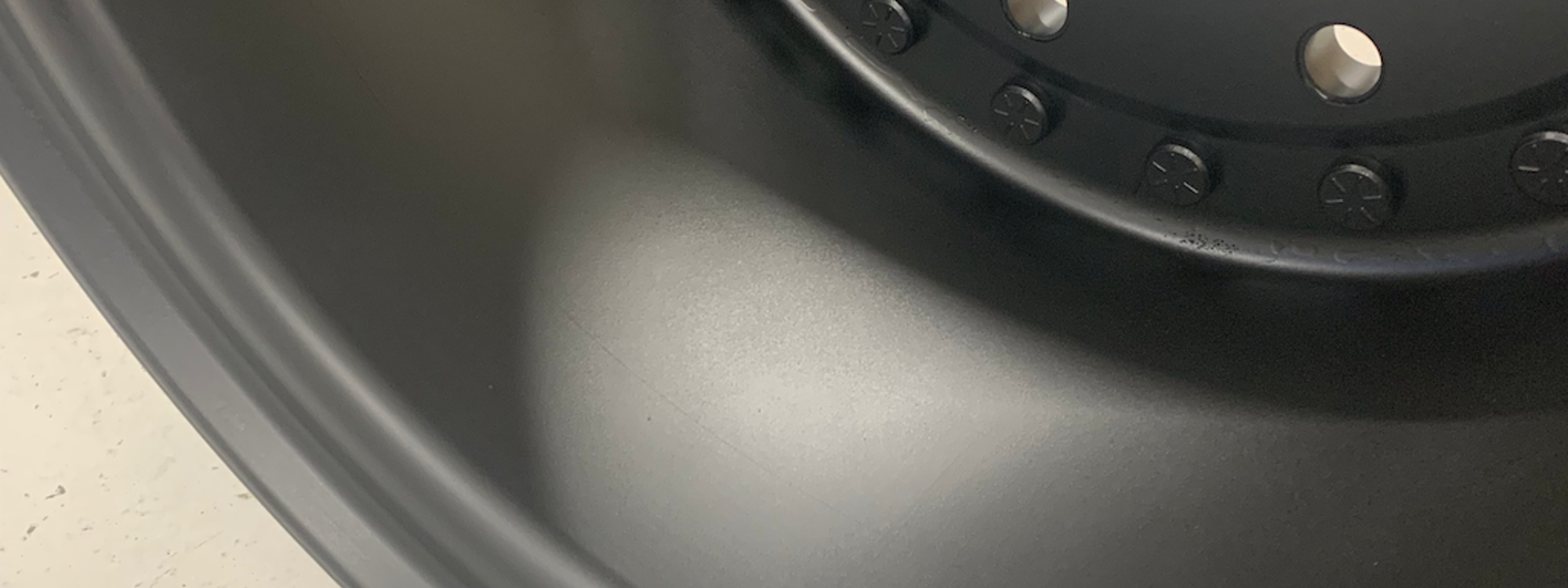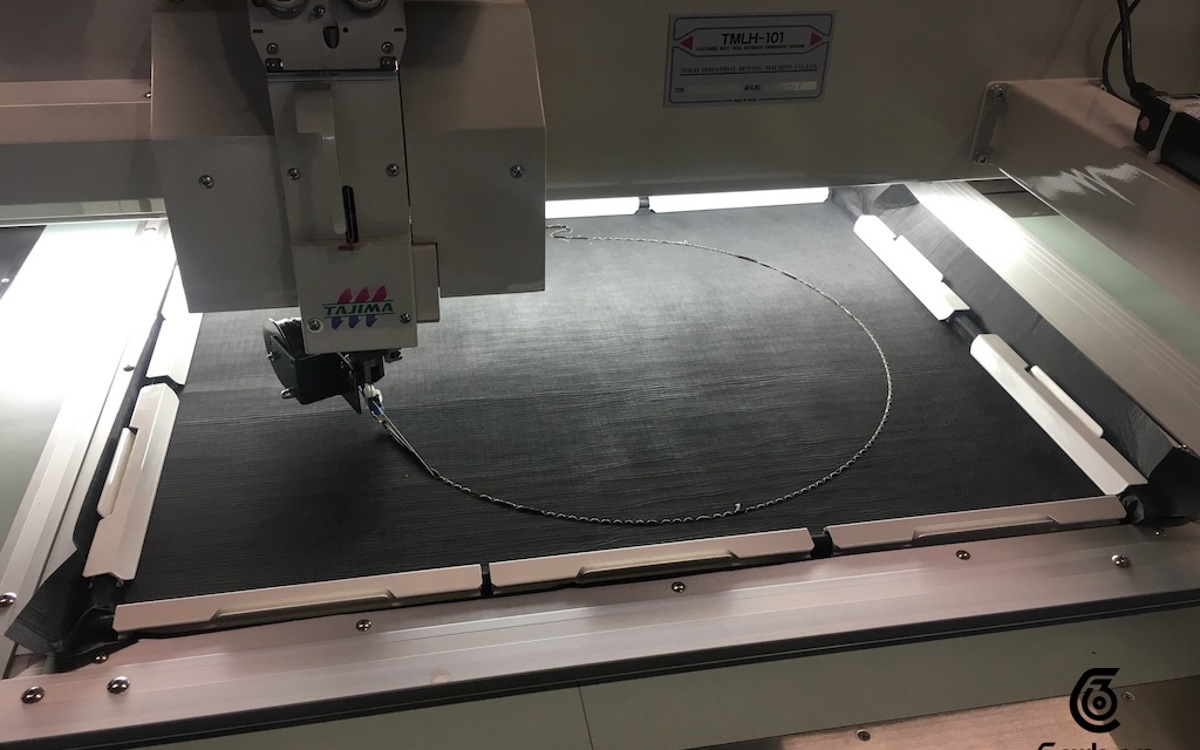
Carbon ThreeSixty invests in TFP technology after successful trial with the NCC
29 October 2019
Carbon ThreeSixty, a manufacturer of advanced composites structures has completed a successful trial with the National Composites Centre (NCC) in the application of Tailored-Fibre Placement (TFP) technology to reduce manufacturing costs and mitigate material waste.
Carbon ThreeSixty specialise in out-of-autoclave production of bespoke automotive and off-highway wheels and associated components. Such challenging, highly stressed structures are inherently complex, and for true weight, stiffness and strength optimisation the reinforcing fibres must be placed to run in specific orientations.
These intricate designs are key to delivering next-generation mechanical performance, and the company has been looking at TFP as a potential technology investment. TFP can deliver high precision, free-form placement of fibres within a product, enabling greater design freedom, improved repeatability and the opportunity for multiple design configurations. Hand-in-hand comes a reduction in manufacturing costs to mitigate the material wastage costs associated with traditional NCF preforming.
To manufacture their pre-existing products, Carbon ThreeSixty were building preforms made up of kit-cut layers of woven and non-crimped materials, interspersed with novel fibre format local reinforcements. Manual lay-up to place these materials with fibre orientations in the exact directions required was both challenging and created undesirable levels of in-process waste. Preforms would then be impregnated with high performance polymers by automated Resin Transfer Moulding (RTM).
Through the trial with the NCC, access to TFP technology enabled the company to bespoke stitch fibres onto a thin backing skrim in the exact orientations required and secure in place with a fine thermoplastic polymer fibre. This single unit of designed material would then be placed into a precision RTM closed mould as before, impregnated with resin and cured, giving rise to a highly engineered end-product.
By working with the NCC, Carbon ThreeSixty was able to explore “the art of the possible” with TFP, investigating a number of R&D challenges in direct support of the business case for technology investment. They were able to test whether the thickness and orientation of reinforcing fibres could be realised as-designed, whether fibres could end up being packed too tightly for resin to appropriately infuse, and whether likely fibre deposition rates could keep pace with the rest of their manufacturing processes. It was an opportunity to begin characterising the real-world performance of TFP-based structures against their more traditionally produced counterparts.
The collaboration has resulted in a number of product demonstrators at various scales, including a proof-of-concept heavy duty off-highway wheel being exhibited across Europe during 2019. Further prototypes have been tested at their 6,000 sq. ft facility and are being leveraged by the company to support future business development. The company plans to install a TFP machine in the latter part of 2019, and in the meantime continue research and development activities using TFP capability at the NCC.
Will Battrick, CTO, Carbon ThreeSixty said:
“In our efforts to continually enhance Carbon ThreeSixty’s competitiveness in the global composite structures market, we routinely assess the potential benefit to our clients of newly developed materials, processes and design tools.
“TFP has been on our radar for some time, and having co-operated closely with the NCC to gain access to demonstrator machinery and expertise, we’re now in a stronger position to confidently invest in world-class automated TFP capability. We’re delighted to be on a path that puts us in a prime position to satisfy the ever-increasing demands of our global client base.”
Chris Young, Advanced Technology Progamme Manager, NCC Connect said:
“The NCC is perfectly placed to support companies like Carbon ThreeSixty to accelerate their innovation. By providing open access to technology and a team of experts at the NCC, the Carbon ThreeSixty team were able to undertake extensive trials which have ultimately helped to build a solid business case to invest and grow their business. We look forward to this being the first of many collaborations with the company.”

